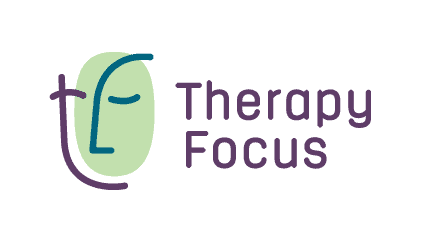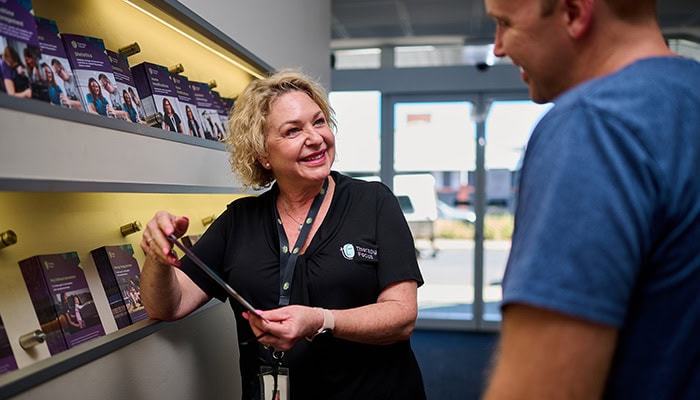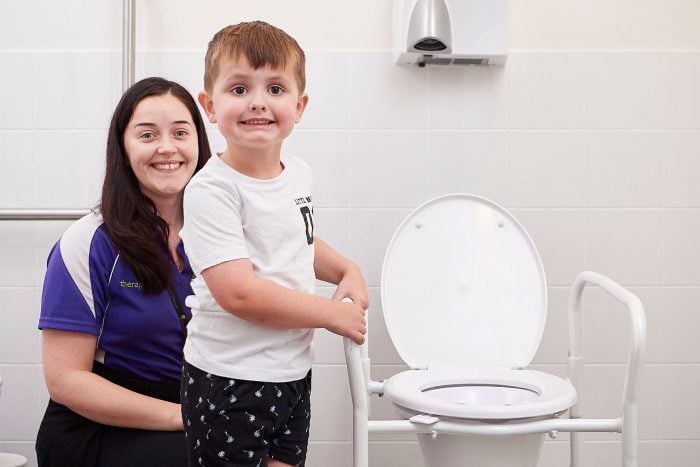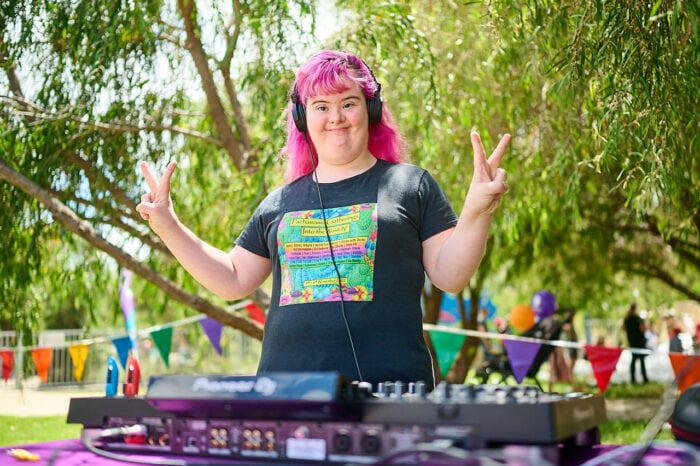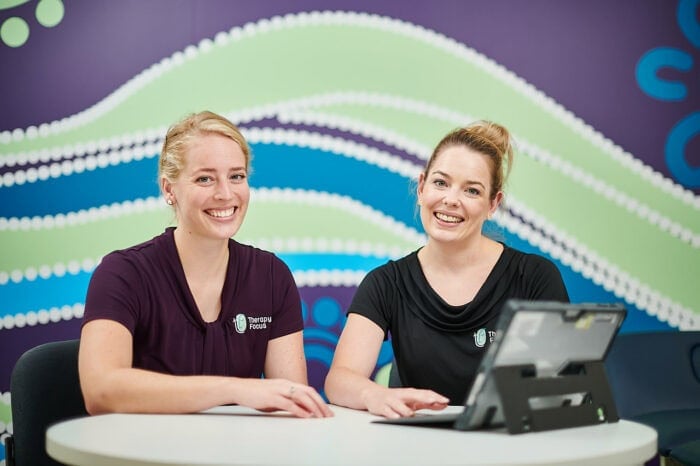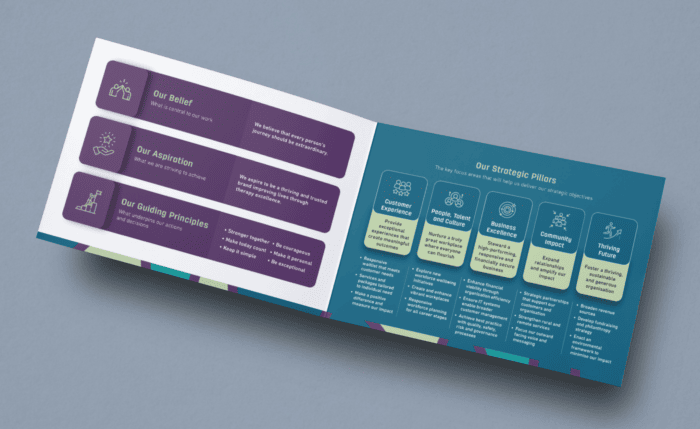How we work
Our therapists work as a team, sharing skills and expertise to help you achieve your goals.
See how we work
This video is also available in the following languages:
Our Care Model
Independence
We work to ensure you achieve as much independence as possible.
Person-centred Practice
We work with you to find out what you want to achieve and what is important to you.
Participation
We work to ensure you can participate in the activities you enjoy.
Strengths-based Practice
We work with you and the people in your support network to build on your strengths.
Learning Everywhere
We work to ensure therapy and learning happens in everyday life.
Team Work
We work together with the people in your support network to help you achieve your goals.
Evidence-based Practice
We use tried and tested ways of providing therapy and supports.
The Service Cycle
These are the steps we take in service delivery, from signing a service agreement to regular progress reviews.
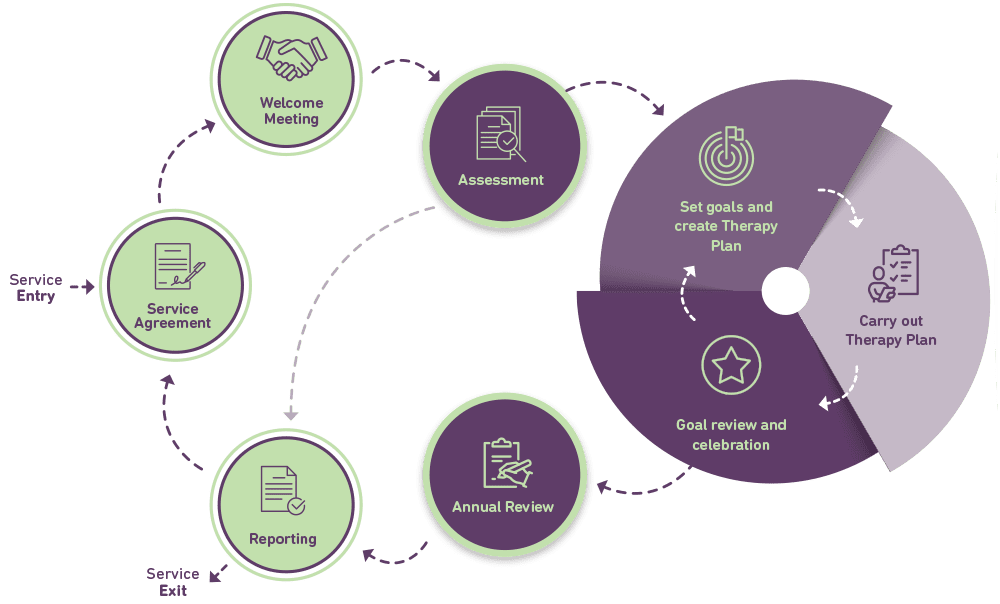
Click on the headings for information about each step in the service cycle:
Before starting therapy, you will need to sign a service agreement. This is a written agreement between you and Therapy Focus that outlines the supports we will provide and how they will be delivered.
View our Terms of Service
Your therapy team will meet with you and the people who are important to you. They will get to know you and discuss your priorities, goals and dreams.
In order to develop your therapy plan, your therapy team may complete assessments to find out what you can do and what you need help with. They do this by:
- Asking you questions
- Talking to the people who help you
- Watching you complete activities at home, school, work, in our office, or in the community
It is our duty of care and an NDIS requirement to explore any key safety needs you may have. We will work with you to assess and plan for your safety needs. We review safety plans with you every year, or sooner if your needs change.
Your therapy team will talk to you about their assessment and suggest ways they can support you to meet your goals. Together you can develop your therapy plan which will include:
- A list of the goals you want you and your team to focus on over the next period
- An agreement around how often you will meet with your therapy team and what other types of support they will provide
- Suggestions of things you can do in your day and week to support the goals being achieved
- Suggestions of things people around you can do to help
Once your therapy plan and safety plan are complete, your therapy team will begin delivering therapy. This can include:
- Helping the people around you make things easier for you
- Giving you activities to help you learn something new
- Showing you how to do something
- Finding equipment that can help you
- Exploring ways to improve your well-being
- Exploring ways to improve your safety and the safety of others
You will need time to practice new skills by yourself, as well as with your therapy team and the people around you. Your therapy team will discuss your goals with you regularly, and you can add new goals together when your old ones have been achieved.
As you progress with you therapy plan, we will review your goals regularly and celebrate your achievements.
Every year your therapy team will complete an annual review with you. During this review they will review your safety planning and consent forms.
This is also a chance for us to celebrate what you have achieved in the past year. You will receive a list of all your completed goals and we will work together to set new goals, if needed.
Toward the end of your NDIS Plan, your therapy team will write a report for the NDIS. This will outline the goals you have achieved and include recommendations for supports that will help you achieve your new goals in your next NDIS Plan.
Your Key Contact
We use a key contact model. This is where one therapist in your therapy team is appointed as your main contact. If you are only seeing one therapist, then that therapist is your key contact.
Your key contact is responsible for coordinating your therapy with the team supporting you. They will get to know you, and the people who are important to you, to make sure your needs are met and you’re on track to achieving your goals.

